Summer 2021
Talent Newsletter
Talent Newsletter
In this issue... Director's Message | Talent Development from Elementary through High School | Talent Development in School: The Role of Acceleration | Skills for School Transitions and Personal Development
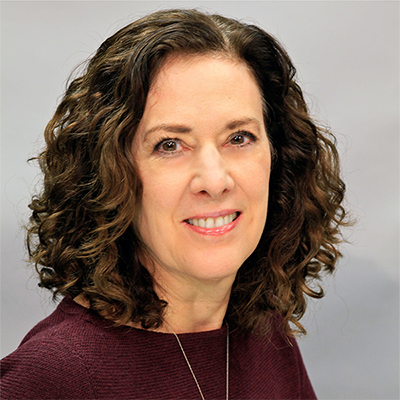 After a disrupted school year, the transition back to school this fall will vary by community and individual. Both families and educators are dealing with the aftermath of personal and educational struggles, and some continue to face loss and upheaval. Given the diversity of experiences and inequities in access to resources exacerbated by the pandemic, supporting social-emotional well-being and assessing academic progress will be challenging, but critical.
After a disrupted school year, the transition back to school this fall will vary by community and individual. Both families and educators are dealing with the aftermath of personal and educational struggles, and some continue to face loss and upheaval. Given the diversity of experiences and inequities in access to resources exacerbated by the pandemic, supporting social-emotional well-being and assessing academic progress will be challenging, but critical.
For this issue of Talent, we spoke with four education experts about the support needed to bridge this transition while still keeping in mind talent development and long-term goals for growth:
Center for Talent Development’s Rhoda Rosen and Kate Cichon share ideas for enriched learning that promotes the identification of talents and interests in young learners.
Dr. Susan Rakow delves into understanding the needs of advanced middle school students and addressing learning in academic, social, and behavioral domains this year.
Aaron Zdawczyk of Northwestern Admissions discusses maximizing the high school experience and understanding recent changes to the college admissions process. He also offers insights for reframing the high school experience as a journey of self-exploration.
I hope their guidance serves our readers as we all work to practice patience and usher in a new school year, while continuing to look to the future with hope and a vision for achievement.
How can families and educators prepare to make this a great year for academically advanced students using a talent development lens? This issue of Talent unpacks skills and experiences that will aid talent development and social growth, from early childhood into young adulthood.
As parents, educators, and leaders in the field of early education, Center for Talent Development (CTD) Associate Director Rhoda Rosen and CTD Coordinator of Academic Year Advanced Enrichment Programs Kate Cichon are passionate about helping young learners thrive. The following are their recommendations for enriching experiences that will help families and educators prepare for the school year ahead.
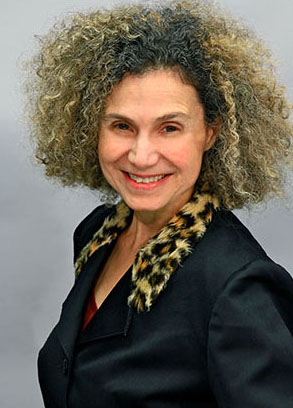 Take advantage of an array of in-person and online enrichment opportunities through family days at museums, local park district programs, or by structuring learning opportunities around family travel. These fun activities may look like play, but in fact, “By using local cultural institutions, parents model being curious and strengthen a lifelong commitment to learning.” says Rosen.
Take advantage of an array of in-person and online enrichment opportunities through family days at museums, local park district programs, or by structuring learning opportunities around family travel. These fun activities may look like play, but in fact, “By using local cultural institutions, parents model being curious and strengthen a lifelong commitment to learning.” says Rosen.
Students can also take supplemental educational programs to engage with peers who are passionate about the same things, take academic risks by trying something new, and learn important skills that take place within varied learning communities. “For example, if they're interested in animals, students might want to take a class about zoo veterinarians,” says Rosen. “Young people need to venture out and discover new things about the world.”
"Open-ended questions are important because they develop the creativity and higher order thinking that future leaders need" - Rhoda Rosen
Children have a natural ability to learn through play. In guided play, parents provide the materials, vocabulary, and ask open-ended questions along the way, but children lead the experience. In a study on guided play published by the Association for Psychological Science, when an adult demonstrated one function on a multifunctional toy, children concentrated on that function of the toy while playing with it. When an adult, rather than giving instruction, “seemed to happen on the function by accident,” children explored and learned more of the toy’s functions.[1] The researchers suggested educators employ guided play by hinting at ways to explore and by asking questions.
Center for Talent Development at Northwestern · Rhoda Rosen on Developing Critical Young Thinking Skills in Young Learners
Asking open-ended questions is a skill that takes time to develop. Rosen shares the following examples to get parents and teachers started:
“Open-ended questions are important because they develop the creativity and higher order thinking that future leaders need,” notes Rosen. “We want children to feel safe enough to take the lead and have the agency to know they can solve problems. Try to let go of predetermined ideas of what should happen, and don’t give into the temptation to step in and complete things for a child. Children feel good about discoveries they make for themselves. Aim for open-ended conversations and exploration, allowing children to find the answers.”
Parents can assist older children with projects that they envision but may need help in enacting. For example, writing and directing a play with friends is a wonderful activity to take on and parents can help with breaking down the project into steps—writing the play, designing the scenes, creating costumes—thereby teaching planning and organizational skills. Parents play a support and facilitative role, enabling their child to express their creativity and agency. They can provide encouragement and redirection when their child is frustrated, thereby encouraging persistence and resiliency.
Parents can also help students explore topics of interest, guiding them toward reputable internet resources and books.
Center for Talent Development at Northwestern · Rhoda Rosen on Executive Functioning
Executive functions are cognitive processes that aid learning and, according to the Rush NeuroBehavioral Center, “allow people to plan, organize, make decisions, pay attention, and regulate behavior.” Cultivating these skills is especially valuable after a year of disrupted learning. While parents and educators should not expect to see fully developed executive functioning in elementary school, they can start to have conversations around these skills:
"We have to teach in a way that is culturally and individually responsive to each child" - Rhoda Rosen
As students return to classrooms this fall, we don't know how hard this past year might have been for them. “We have to teach in a way that is culturally and individually responsive to each child,” notes Rosen.
Center for Talent Development at Northwestern · Kate Cichon on the Pandemic's Impact in Young Learners
Children have spent a large part of their lives in a pandemic, notes Cichon. “And it's the 10-20% that is the most recent, readily recalled, and impactful. Children don't have the same skills to recall as adults do, so experiences before the pandemic are long ago in their memories. We have to be patient and help them learn, for the first time, how to engage in certain situations.”
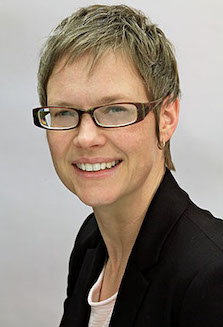 Cichon advises parents to initiate gentle conversations about going back to school a couple of weeks beforehand. “Start by asking what they’re excited about,” says Cichon. “Follow up by asking about something, if anything, they’re nervous about. Acknowledge their responses, allow that nervousness to be there, saying, ‘I get that you're a little bit nervous about the first day and meeting new people. I think I would be too. What do you think we can do to prepare for that first day? It may not make you less nervous maybe, but maybe it'll make you feel more ready for it.’"
Cichon advises parents to initiate gentle conversations about going back to school a couple of weeks beforehand. “Start by asking what they’re excited about,” says Cichon. “Follow up by asking about something, if anything, they’re nervous about. Acknowledge their responses, allow that nervousness to be there, saying, ‘I get that you're a little bit nervous about the first day and meeting new people. I think I would be too. What do you think we can do to prepare for that first day? It may not make you less nervous maybe, but maybe it'll make you feel more ready for it.’"
Parents can also ease the transition back to school by making educators aware of what their child did while learning at home, particularly if this has implications for placement and instruction upon the return to school. If a student engaged in a lot of online programming in mathematics while home, they may need to be considered for acceleration.
As a professor, presenter, and author of numerous articles and two books: (Educating Gifted Learners in Middle School: A Practical Guide and Teaching to the Top), Dr. Susan Rakow has dedicated her career to the education of gifted and talented children and adolescents. Her advice for helping middle school students, who are trying to figure out who they are and what role their intelligence plays while processing physical changes, is all the more pertinent at a time of pandemic-related uncertainty.
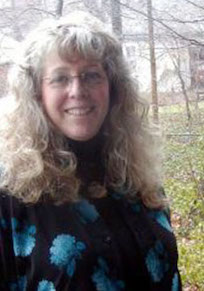 Advanced middle schoolers are often in advanced classes with older kids, but still have to deal with the issues of their chronological age. “At this time of asynchronous development, we see significant differences between boys, girls, and those who identify as non-binary,” a conflict which is prevalent in preschool and middle school, notes Rakow.
Advanced middle schoolers are often in advanced classes with older kids, but still have to deal with the issues of their chronological age. “At this time of asynchronous development, we see significant differences between boys, girls, and those who identify as non-binary,” a conflict which is prevalent in preschool and middle school, notes Rakow.
Middle schoolers struggle between dependence and independence. They often look older and seek greater independence, placing more importance on bonds with peers. However, they still need support and need to follow rules at school and at home. “This is a normal developmental process, but middle schoolers expect restrictions to be more logical and in line with how they think about the world,” notes Rakow. “Responses given by adults such as, ‘because I'm the teacher,’ or, ‘because I asked you to,’ don't hold as much water as they did when students were younger.”
Students face more academic rigor and increasingly complicated social relations as middle schoolers. Students who coast through elementary school may lack academic and study skills to tackle more challenging curricula in middle school. “When a gifted middle schooler’s intelligence or academic abilities are challenged, it's like their whole identity is being challenged,” notes Rakow. This is a big transition for advanced students, who were previously celebrated for their academic achievements.
Middle schoolers are also confronted with competition outside of their talent areas, biases, and changes in what’s valued. More emphasis is placed on athletics, or specialized academic areas like competing on the chess team. Kids also face pressure to conform. Gender bias is improving, but not at the pace that Rakow would like to see. For boys who excel in the arts, or for girls who love sports, there can be pressure to not fully be who they are.
“Kids have told me the rules for what it means to be popular—to be accepted—change rapidly, and no one knows who changed them,” says Rakow. Trends related to fashion, technology, new games, or access to cell phones or social media become areas of potential pain and trauma for middle schoolers.
“The only way to learn developmentally appropriate social skills is in social circumstances,” says Rakow, noting how this year presents a particular challenge for students as they transition from pod, hybrid, or virtual school back to in-person classroom environments. “Kids will make mistakes. They'll hurt other kids' feelings, have their own feelings hurt, be rude to teachers, or exhibit other behaviors they've acquired. The only way for them to learn is to go to school, be in those situations, and be patient.”
Kids will need patience, love, attention, and a good listening ear. “The two phrases I often tell parents to say to kids in tough situations are, ‘That must be hard for you,’ and, ‘Tell me more about it.’ These can really open up conversations,” notes Rakow.
Rakow recommends Free Spirit Press, Prufrock Press publications now available from Routledge, and the American Girl series for resources related to dealing with cliques and other social issues.
Rather than focusing on learning losses due to the pandemic, Rakow suggests parents help kids relearn how to go to school. Rakow offers the following advice for easing into the sensory overload of full-time, in-person school:
“This year has the potential to cast a light on the areas in which schools struggle to meet the needs of different populations” - Dr. Susan Rakow
During the pandemic, many school districts have had to put tremendous attention into ensuring students have access to technology and meals, leaving less time focused on academics. “This year has the potential to cast a light on the areas in which schools struggle to meet the needs of different populations,” notes Rakow.
Center for Talent Development at Northwestern · Susan Rakow on the Transition Year for Students
Rakow offers the following first steps for educators heading back into middle school classrooms this fall:
Disparities in what has been available to students during the pandemic based on what their schools could provide and who was home to help guide their learning experience are going to be felt this year. “But they can be overcome,” says Rakow. “We need to be patient, accept the realities of the past, and move forward in whatever ways we can.”
While the prospect of becoming an adult with more choice and freedom can be exciting, many high school students feel uncertain about preparing for the future. In his work as Senior Associate Director of Admission and Director of Recruitment Strategy and Initiatives for Northwestern University’s Office of Undergraduate Admissions, Aaron Zdawczyk offers advice for students facing big decisions and pressures associated with transitioning to life beyond high school.
“Self-reflection and individual growth are the most important part of the high school experience—whether these are positive experiences or failures that promote learning and self-discovery” - Aaron Zdawczyk
“It’s important for students to understand that it's not all about accomplishments or titles, but rather experiences that allow them to understand their own personalities and figure out what they want,” notes Zdawczyk. “Self-reflection and individual growth are the most important part of the high school experience—whether these are positive experiences or failures that promote learning and self-discovery.”
Zdawczyk recommends approaching high school as a journey with progressive stages:
Zdawczyk hopes this process, rather than becoming overwhelming or stressful, will align with individual goals, aid in personal development and social growth, and help students practice lifelong skills in preparing for the next stages in their lives.
The college admissions process continues to be viewed through the lens of the pandemic as schools consider the impact on individual students. “We’ve worked to be more empathetic, understanding, and available to hear student stories,” notes Zdawczyk.
During the pandemic, access to campus visits and tours, which aid in the discovery and decision making process, has been limited. Zdawczyk and his colleagues have worked to open doors for students through new digital recruitment efforts. “We’ve discovered more engaging ways to help students through the process,” says Zdawczyk. “More than ever, students are able to engage where and when they want and have more opportunities to connect that are personal.”
In addition to expanding digital recruitment, the pandemic has transformed the college search process through its impact on testing. With test centers closed, the vast majority of colleges and universities in the United States adopted “test-optional” policies last year. Students can now choose whether or not to submit standardized test scores, including the SAT®, ACT®, and Advanced Placement® exams, as part of their application. “Many universities had already shifted emphasis away from testing, but the extent to which the pandemic challenged the equity and value of standardized tests has been transformational,” says Zdawczyk. “It has been a watershed moment in the profession, as we look at what is available to individual students in terms of their access to educational opportunities.”
Schools are returning to a review process with a foundation in academic experience, combined with: information students provide about their activities, who they are through their own voice, and who they are through the voice of the adults around them in the form of recommendations. “It has strengthened our commitment to those areas and opened up opportunities for students for whom testing was a barrier or financial challenge,” says Zdawczyk.
"We see students from all over the world, and every student has their own individual story and context"- Aaron Zdawczyk
For most students, the transition to life beyond high school is a process of personal discovery. Both high school and college students benefit from building skills in self-reflection and seeking the support they need. “These skills will serve them well throughout life, knowing that there are always going to be challenges, limitations, and struggles,” notes Zdawczyk. “A university, we hope, is a place where they can get that support.” Both as seniors and later as young adults, Zdawczyk encourages students to find the balance between social life and academics that works for them while also maintaining their physical and mental health.
Finding ways to express themselves is a valuable skill for high school students to cultivate. “We see students from all over the world, and every student has their own individual story and context,” says Zdawczyk.
Experiences that excite them about a topic and/or that make a difference in their community help students have something to say while also building confidence and self-esteem. “Some students will have the time and resources to join clubs and organizations, while others might have significant responsibilities at home or in their community,” notes Zdawczyk. “What they have in common is excelling in academics and being able to tell us who they are, helping us to envision who they will be at the university. There's no single track to success or to a future at a great university. There are many different paths.”
Zdawczyk advises students to focus on the journey and not to lose sight of what's important to them. Keeping this advice in mind will help students of all grade levels succeed and find fulfillment in the year ahead.
[1] Alison Gopnik, a professor of psychology and philosophy at the University of California, Berkeley, found similar benefits to playful exploration, proposing that parents can foster deeper and resilient learning by acting, in her metaphor, as gardeners providing a safe environment for growth rather than carpenters determining the right skills and training in pursuit of a certain outcome. According to Gopnik, similar principles were found while training robots via artificial intelligence.
As students return to school and transition from one stage of schooling to the next, it is important to consider how the school setting will fit each students’ learning needs and help them reach full potential. Students with advanced abilities and talents may be limited by their age-assigned grade levels. But when should those students advance in a particular subject or skip a grade? The decision to accelerate involves a number of academic, developmental, and social considerations, and it requires a dialogue that includes students, parents, and educators.
In this interview with CTD, Dr. Ann Lupkowski-Shoplik, a professor and a r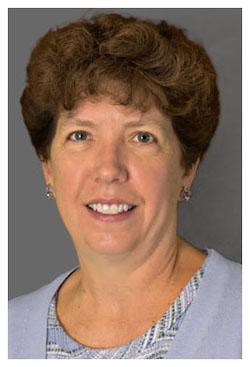 esearcher at the Acceleration Institute at the University of Iowa’s Belin-Blank Center, discusses the challenges, opportunities, and misconceptions that surround acceleration, and shares a new tool for determining readiness of advanced learners for acceleration. This online resource, the Integrated Acceleration System, gives parents and schools the tools to assess a child’s readiness to move ahead.
esearcher at the Acceleration Institute at the University of Iowa’s Belin-Blank Center, discusses the challenges, opportunities, and misconceptions that surround acceleration, and shares a new tool for determining readiness of advanced learners for acceleration. This online resource, the Integrated Acceleration System, gives parents and schools the tools to assess a child’s readiness to move ahead.
Though many people may only think of skipping grades when evaluating a student’s readiness to advance in school, there are many kinds of acceleration. A talented student might benefit from any number of the more than 20 ways to accelerate, including taking certain classes above grade level or participating in supplemental learning experiences like CTD programs. “Opportunities during the summer or the school year can be helpful for these students,” Lupkowski-Shoplik advises, and adds that “whole grade acceleration isn’t always the right answer for all talented students.”
To determine which types of acceleration are most appropriate, parents and educators should begin by observing how each learner expresses readiness to move ahead. Lupkowski-Shoplik explains that these students might work quickly, and they might be drawn to concepts beyond their grade levels. “They might be interested in games and books and other activities that older kids are interested in,” she offers. She adds that some students might also be frustrated at the limited opportunities in their grade, complaining that “school is boring” or “showing disengagement in school if it isn’t challenging.” Lupkowski-Shoplik has observed students asking for acceleration early on, as young as second grade: when students are ready to move ahead, she says, “they let us know.”
Center for Talent Development at Northwestern · Ann Shoplik on The Importance of Challenges
Once a child shows an interest in advancing in school, parents and educators must connect to discuss assessment and potential paths forward. The new Integrated Acceleration System gives them the tools to develop a plan online. Though Lupkowski-Shoplik points out that an earlier acceleration decision-making resource, the Iowa Acceleration Scale, is still a valuable paper-based tool, the Integrated Acceleration System offers a fully online, “interactive” way to build a plan for a student. She says a main benefit of the Integrated Acceleration System is its ability to generate a detailed report with recommendations and relevant supporting data.
The Integrated Acceleration System is the result of years of development, and Lupkowski-Shoplik says it has elicited an “enthusiastic” response so far. “We focused on whole-grade acceleration, but we also wanted to give people the opportunity to think about subject acceleration, early entrance to kindergarten, and early entrance to college,” she says when discussing the creation of this new online resource. Lupkowski-Shoplik adds that the system is providing an increased focus on twice-exceptional students, explaining that research highlights the importance of acceleration for this population of learners.
Drawing on her extensive experience and research, Lupkowski-Shoplik says “the picture is really positive” for most students who are ready to accelerate. Still, these students may encounter unique setbacks, even before they advance to a new program or grade. If a child has never struggled academically, that student might be rattled by even a small mistake. Lupkowski-Shoplik notes that some teachers might also inadvertently reinforce expectations for advanced students to always succeed. “They’re used to seeing these kids do well,” she says, and that might cause instructors to voice surprise at a missed point or a low grade. Instead, educators can focus on ways to contextualize failure in a way that benefits the student. This is also why deliberately cultivating psychosocial skills is so important.
Children and their parents may also be concerned about the potential social stressors associated with acceleration. Lupkowski-Shoplik explains that these challenges may include maintaining friendships with former classmates, and adjusting to the more mature conversational topics, adult subject matter, unfamiliar behaviors, and rites of passage found in higher grade levels. However, she notes that in a phone survey of students who had accelerated, participants revealed that social setbacks related to acceleration were temporary. Several students said they wished they had accelerated sooner. Also, a recent study from researchers at Vanderbilt University found no significant long-term negative impacts to the participants either psychologically or socially because of their accelerated coursework as children and teenagers.
“People used to worry about kids running out of opportunities. We just can’t use that excuse anymore. The student can still get it: whether that’s online, or by attending a summer program, or some other opportunity" - Dr. Ann Lupkowski-Shoplik
Lupkowski-Shoplik says there is also a common misconception that students will somehow exhaust a supply of knowledge if they continue to accelerate. “People used to worry about kids running out of opportunities,” she explains, but adds “we just can’t use that excuse anymore.” Regardless of whether or not a course is offered in the student’s year-round school, “the student can still get it: whether that’s online, or by attending a summer program, or some other opportunity.” This kind of supplemental education, such as CTD programs, can make a powerful difference for advanced students. “They are life-changing, and I’ve seen that with kids,” Lupkowski-Shoplik says, adding that these programs allow students to find peers, build lasting friendships, experience early forms of mentorship, and receive recognition for their hard work and talents.
Center for Talent Development at Northwestern · Ann Shoplik on Socialization Challenges In Acceleration
In addition to exploring opportunities to supplement the needs of advanced learners, Lupkowski-Shoplik highlights the importance of approaching acceleration with creativity, consideration, and curiosity. To ease a transition to a new grade, Lupkowski-Shoplik says families can rehearse how to talk about acceleration, and students can benefit from meeting new teachers prior to the start of class. Educators and families can both learn from online resources, such as the information on the Acceleration Institute’s website. Finally, parents and teachers can work together to advance a conversation about acceleration. Lupkowski-Shoplik notes that many parents ask the initial questions about their students’ readiness to accelerate, and they then share what they learn with key school staff. With new online tools, extracurricular programs, and an increased understanding of advancement among educators, Lupkowski-Shoplik affirms “there are lots of ways to spread the good news about acceleration.”
Academic achievement is only one aspect of the talent development equation. Reaching your potential and fulfilling your dreams also requires the cultivation of psychosocial skills at key stages of the talent development process. How? There many ways, but it boils down to having opportunities to experience challenge in the talent domain and develop necessary content knowledge and skills, authentic work with professionals and experts, and support that helps mediate the new experiences. Below, we explore a few of the psychosocial skills and related activities that are necessary for success at each stage in school.
Students need to strengthen their executive function skills. For older students, this might include organizing their lockers and planning for large assignments. In advance of college, students can maintain a portfolio of coursework and achievements, and they can practice self-management by doing laundry and using an alarm clock. In elementary school, students can lay the groundwork for good planning and time management by maintaining a schedule and completing work early.
Students also need to learn to set goals, develop their ability to cope with challenges, and benchmark their progress, which can occur through nonacademic or extracurricular activities. Clubs, sports, and the pursuit of independent interests provide students with valuable context for their abilities outside the classroom. After an extended period of remote instruction, a parent-teacher conference may be particularly useful in contextualizing extracurricular achievements and opportunities. A meeting like this can highlight a student’s progress in goal-setting and self-directed learning throughout the past year, and it can start a conversation about advancement options.
Elementary school is an excellent opportunity for students to practice building the knowledge and skills that will serve them later in life. Students in the early grades can focus on accepting feedback and using it to make progress. They can also work on cultivating a growth mindset. Other skills include the following:
Middle school is a time of great social and personal change. To further their talent development, students in these grades can focus on strategies for strengthening interpersonal relationships (peer dynamics, conflict resolution) and self-awareness (recognizing the pitfalls of perfectionism and procrastination, understanding their own learning styles). Middle school students can spend these years learning to manage competing priorities while embracing challenges and change. Skills include the following:
As students look ahead to life after graduation, they can benefit from reflection and focused conversations about the future. Through an examination of their own goals and values, college-bound seniors can weigh the merits of different kinds of university experiences. And by establishing a consistent dialogue with school counselors and planning with parents, students can make informed choices as they prepare themselves for greater independence. Skills and experiences include the following:
Our in-person Weekend Enrichment Programs have returned to the Chicago area! Be sure to explore the wide variety of courses available in Evanston, Chicago, and Downers Grove.
Check out all of CTD's online and in-person programs for students age 3 through grade 12.